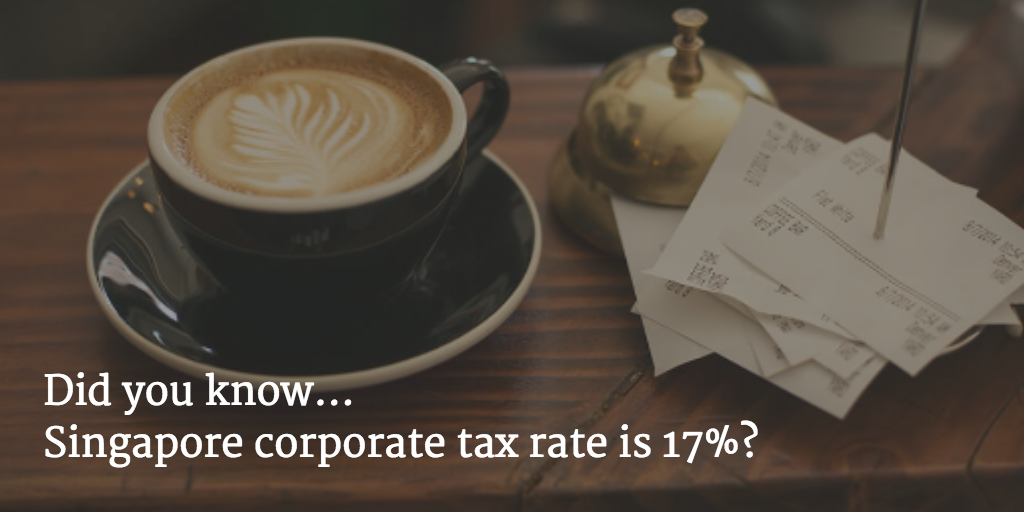 Filing taxes can be a daunting task. Figuring out deductions and what your company is exempted from is complicated enough before you realise that it’s a new financial year, the rules have changed, and now you’re not under the same tax exemptions anymore. We looked around the interwebs for a while and we were stumped. So we decided this problem needs to be fixed.
Filing taxes can be a daunting task. Figuring out deductions and what your company is exempted from is complicated enough before you realise that it’s a new financial year, the rules have changed, and now you’re not under the same tax exemptions anymore. We looked around the interwebs for a while and we were stumped. So we decided this problem needs to be fixed.
Over the years, the Singapore government has tried to make the country a tax friendly one for corporates. With a bunch of nifty exemptions, retailers, restauranteurs and growing businesses can breathe a sigh of relief. The government’s got your back. Let’s get down to some important pointers for you to file taxes for your company.
Important Facts:
- Rate: The current corporate tax rate is 17%.
- Dates:
- Within 3 months of the company’s financial year end, the Estimated Chargeable Income document must be filed and submitted
- Every year in April, the IRAS sends Forms C-S or Form C filing package.
- 30 November: The Paper version of the Corporate Income Tax Form (Forms C-S or Form C) must be submitted. 15 December: The e-File Form of the same document must be submitted. Either the paper or the electronic version must be submitted.
- FormIR8A, which is a statement of an employee’s remuneration, must be issued for each employee by 1 March of every year.
- Your company needs to keep records of transactions for a minimum of 5 years. They must be submitted to IRAS upon request.
- Use mytax.iras.gov.sg to file your company’s taxes, check or post objections to your tax assessment and apply for exemptions.
- Taxes can be paid via internet banking, SAM, AXS station, Cash/NETS or GIRO.
Estimated Chargeable Income: Are you exempted?
The ECI is used to estimate your company’s taxable income. The IRAS notifies you before your ECI file is due. However, as a tax break, if your ECI is zero or your annual revenue is $1 million or less, then you do not have to submit the ECI, even if you have received a notification for it.
The ECI can be filed at mytax.iras.gov.sg. The government will then notify you on the exact tax amount which you have to pay within a month of the notice.
Corporate Income Tax Form
This is the big one. Here is where you declare your actual income in the financial year. It needs to be filed regardless of what your income looks like. There are two types: Form C-S and Form C. For a company with revenue not more than $1 million, Form C-S must be filed.
Exemptions
This is the part we have all been waiting for. With these exemptions, the government makes it easier on a start-up’s cashflows for a few years at least. Go through it because there is some good news for retailers as well.
Tax Exemptions for Start-ups: Start-up companies enjoy 100% tax exemption for the first $100,000 of chargeable income for 3 years. Another 50% exemption can be exercised on the next $200,000 which effectively means the tax rate is 8.5%.
Partial Tax Exemption: From the fourth year onwards, start-ups can exercise the Partial Tax Exemption. Here, 75% of the first $10,000 is exempted and another 50% on the next $290,000 is exempted.
Expenses before starting your business: The government also exempts taxes on expenses incurred the year before your company’s financial year in which you start your business. For example, if you financial year starts in Jan 1 2014 and your first earnings were on June 1 2014, then you will be exempted on paying taxes for expenses incurred between Jan 1 2013 and Dec 31 2013.
Capital Allowances: This one is great for retailers. You are given a capital allowance on fixed assets like electrical equipment, furniture and other fixtures for you company. This is in place of depreciation which is non-deductible.
E-Commerce
Retailers that create income through e-commerce websites have a set of rules that they need to follow. For a franchisee or a branch in Singapore with a franchisor based in a foreign country, the income generated by a website is not liable to taxation in Singapore. This is true even is the company’s customers are in Singapore or not. Check the links below for more details on taxation on e-commerce-centred business.
We hope this was helpful to you! We have put in some great links with guides to fill up your corporate tax forms. Do comment or drop in your email for more handy information!
Basic Corporate Tax Calculator: https://www.iras.gov.sg/irashome/page.aspx?id=6784
Disclaimer: As always, consult your lawyer or accountant for advice! We are here to help, but your specific situation should be reviewed by a professional with complete knowledge of your situation.

Pingback: Singapore Corporate Taxes 102: Auto Inclusion Scheme